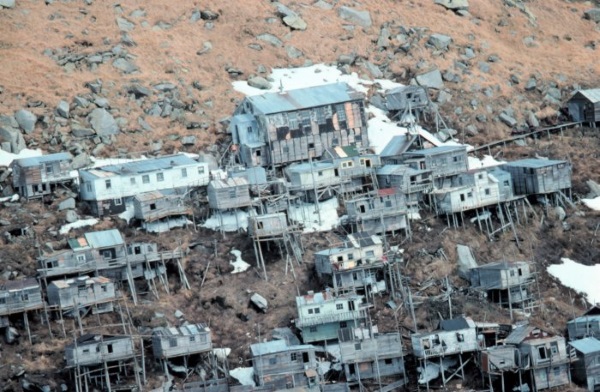The eerie cliff-hanging village of Uvitok still clings to the forbidding shore of Alaska’s King Island, long after its last residents abandoned it for good.
No one knows exactly how long the builders of Uvitok had lived on King Island, a rocky and desolate outpost in the frigid Bering Sea 90 miles northwest of Nome, Alaska. The island was first noted and named by Captain James Cook in 1778 but by that time the Aseuluk people (also known as Ukivokmiut) had already been living there for hundreds, even thousands of years. The public domain photo above depicts the village in 1927 and comes courtesy of the Curtis (Edward S.) Collection.
Over that span of time, several hundred Ukivokmiut had managed to eke out a subsistence living on the 1 mile (1.6 km) wide island while gradually building a unique culture. Though early European explorers such as the doomed Sir John Franklin considered the high arctic a white wasteland, the region actually abounds in food and resources. The trick was learning how to exploit these resources in a sustainable manner that guaranteed survival for current and future generations. Taking advantage of their location betwixt land, sea and sky, the islanders gathered the eggs of seabirds and other food sources on King Island during the summer. In winter, they hunted marine mammals like walruses and seals; supplementing these rich food and material resources with ice fishing.
